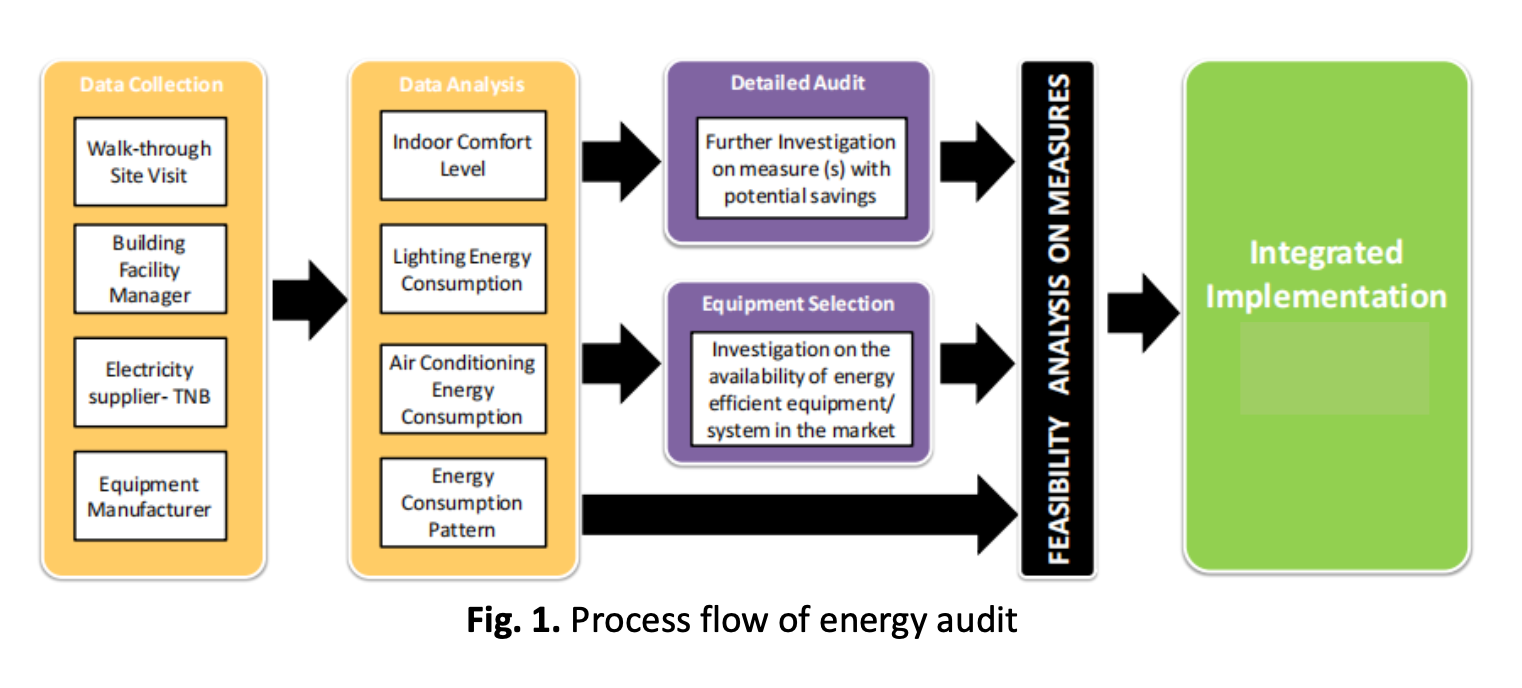Energy Efficiency Study in Alor Gajah Municipal Council Buildings
DOI:
https://doi.org/10.37934/arfmts.100.2.114Keywords:
Energy efficient, energy audit, thermal comfort, renewable energyAbstract
Energy efficiency in buildings plays a prominent role in the integrated urban development and environmental planning. By reducing the energy consumption of buildings, the environmental impact and carbon footprint are less, as well as costs for energy are reduced and optimized. The poor results from previous energy efficiency initiatives had forced the Malaysian government to launch National Energy Efficiency Action Plan for 10 years implementation period of 2016-2025 (NEEAP) after taking into account the socio-culture, policy, financial, and administration barriers. The objective of this study was to present and discuss the findings of the energy audit for the Alor Gajah Municipal Council (MPAG) building complex. MPAG will be able to save up to RM2,400,00.00 in energy spending between 2020 and 2030, should all the energy efficiency initiatives be fully implemented together with renewable energy. By investing in energy efficiency MPAG can achieve substantial energy cost savings throughout the facilities, demonstrate energy and environmental leadership, and raise self-awareness of the benefits of energy efficiency. This case study also summarises the recommendations for the implementation of energy efficiency in the building complex. Some suggestions are made in this paper as measures to improve the delivery mechanism. The Internet of Energy (IoE) is an implementation of the Internet of Things technology (IoT) will becoming a legal science tool to serve the purpose of a smart city.
Downloads
































